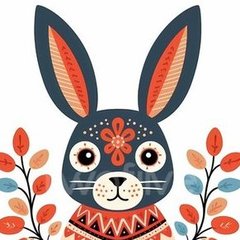Search the Community
Showing results for tags 'virtue'.
Found 2 results
-
Some would like to say that there is no connection between virtue and De (德, often translated as "inner power" or virtue) in the Dao De Jing, and that reading it as such is merely forcing a Christian or Confucian worldview on the text. Other's, such as myself, would like to show that De is very much connected to virtue in the Confucian sense, and even in the Christian sense of the word as "moral virtue," as it is both virtuous, the numinous embodiment of Virtue Itself, and humanity's corresponding quality in nature, of virtue. Perhaps there are also language barriers which lead to such confusion about the virtue (power) of using the word "virtue" to describe De, so below are some definitions (bold mine) of virtue to help show the applicability of the term to De. Please note that the word "virtue" in English also has the synonyms of "moral excellence," "efficacity," and "force or power," as the character 德 De has in Classical Chinese. 1. a. Moral excellence and righteousness; goodness. b. An example or kind of moral excellence: the virtue of patience. 2. Chastity, especially in a woman. 3. A particularly efficacious, good, or beneficial quality; advantage: a plan with the virtue of being practical. 4. Effective force or power: believed in the virtue of prayer. 5. virtues Christianity The fifth of the nine orders of angels in medieval angelology. 6. Obsolete Manly courage; valor. We can look at chapter 51 and see how De is a numinous power, yes, but is there no virtue in this power? Is the power not the macro version of virtue itself? And if one wishes to be in accord with this power, can they do so without "virtue" in the Confucian and/or Christian sense? Chapter 51 (Yutang trans.) Tao gives them birth, Teh (character) fosters them. The material world gives them form. The circumstances of the moment complete them. Therefore all things of the universe worship Tao and exalt Teh. Tao is worshipped and Teh is exalted Without anyone's order but is so of its own accord. Therefore Tao gives them birth, Teh fosters them, Makes them grow, develops them, Gives them a harbor, a place to dwell in peace, Feeds them and shelter them. It gives them birth and does not own them, Acts (helps) and does not appropriate them, Is superior, and does not control them. - This is the Mystic Virtue. So then we have the question, does the Dao De Jing completely separate the power of De and virtuous behaviour? Does one need to behave virtuously in order to have De? It would help to take a look at Chapters 10 and 28, the only Chapters where De appears in the first volume (ch. 1-37): Chapter Ten (Feng/English trans.) Carrying body and soul and embracing the one, Can you avoid separation? Attending fully and becoming supple, Can you be as a newborn babe? Washing and cleansing the primal vision, Can you be without stain? Loving all men and ruling the country, Can you be without cleverness? Opening and closing the gates of heaven, Can you play the role of woman? Understanding and being open to all things, Are you able to do nothing? Giving birth and nourishing, Bearing yet not possessing, Working yet not taking credit, Leading yet not dominating, This is the Primal Virtue. [last line, 是謂玄德, literally, "This is called profound/deep De"] Chapter 28 (Lin Yutang trans.) He who is aware of the Male But keeps to the Female Becomes the ravine of the world. Being the ravine of the world, He has the original character (teh) which is not cut up. And returns again to the (innocence of the) babe. He who is conscious of the white (bright) But keeps to the black (dark) Becomes the model for the world. Being the model for the world, He has the eternal power which never errs, And returns again to the Primordial Nothingness. He who is familiar with honor and glory But keeps to obscurity Becomes the valley of the world. Being the valley of the world, He has an eternal power which always suffices, And returns again to the natural integrity of uncarved wood. Break up this uncarved wood And it is shaped into vessel In the hands of the Sage They become the officials and magistrates. Therefore the great ruler does not cut up. Both of these chapters show that De is related to modesty, not being boastful, and similar qualities. This virtue of modesty and unselfishness is probably the most prevalent instruction throughout the Dao De Jing, and is at the base of virtuous behaviour/unselfish behaviour. As you can see in Chapter 28, this virtue leads to the inherent power of virtue: Virtue. It's also easy enough to see that Chapter 28 is repeating the same message three times using different poetically descriptive means: male vs. female; white vs. black = honour and glory vs. obscurity. Sure there are innumerable things to be learned via these verses, but they also show what sorts of "virtue" one requires to maintain or realize De. This sort of "virtue" is also very prevalent in Confucian teachings, as well as Christian teachings (not to mention every other wisdom teachings passed down by elders of true wisdom). We can see that this is also the same virtuous quality of Sages, in Chapter Seven: Chapter Seven (Yutang trans.) The universe is everlasting. The reason the universe is everlasting Is that it does not life for Self. Therefore it can long endure. Therefore the Sage puts himself last, And finds himself in the foremost place; Regards his body as accidental, And his body is thereby preserved. Is it not because he does not live for Self That his Self is realized? So this way of the universe and that allows it to be everlasting, is that it does not think of itself first. This is exactly the same quality that describes De. We can also see this quality in the teachings of water, as illustrated in Chapter Eight: Chapter Eight (Yutang trans.) The best of men is like water; Water benefits all things And does not compete with them. It dwells in (the lowly) places that all disdain - Wherein it comes near to the Tao. In his dwelling, (the Sage) loves the (lowly) earth; In his heart, he loves what is profound; In his relations with others, he loves kindness; In his words, he loves sincerity; In government, he loves peace; In business affairs, he loves ability; In his actions, he loves choosing the right time. It is because he does not contend That he is without reproach. So if we are to speak about De as the counterpart to Dao as it appears in Chapter 51, can we not reasonably state that this power is all or either a.) virtuous, b.) the ultimate power of Virtue Itself, or c.) the corresponding quality in nature to human virtue? Yes, De fosters creation, but is this fostering of creation not the same selfless propensity to serve others which Confucianism and Christianity would say makes a person virtuous? Does this not mean that De is very much the numinous embodiment of Virtue?
- 40 replies
-
- 1
-

-
- De
- dao de jing
-
(and 4 more)
Tagged with:
-
.
- 49 replies
-
- discrimination
- virtue
-
(and 1 more)
Tagged with:


